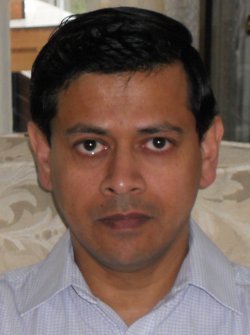Catholic Medical Quarterly Volume 65(4) November 2015
Editorial
Rumblings in the Vatican
Dr Pravin Thevasathan
 I
am not aware of any other Pope in recent history who welcomes criticism as
much as Pope Francis. Loyal Catholics are free to disagree on certain
policy decisions so long as they give complete submission of mind and will
to matters of faith and morals. Various recent policy decisions and
comments from within the Vatican need to be questioned. We will detail
some of these concerns.
I
am not aware of any other Pope in recent history who welcomes criticism as
much as Pope Francis. Loyal Catholics are free to disagree on certain
policy decisions so long as they give complete submission of mind and will
to matters of faith and morals. Various recent policy decisions and
comments from within the Vatican need to be questioned. We will detail
some of these concerns.
Archbishop Sanchez-Sorondo of the Pontifical Academy of Social Sciences was criticized by Stefano Gennarini of the Centre For Family and Human Rights Institute for inviting Dr Jeffrey Sachs to a high profile Vatican conference. Dr Sachs, as special advisor to the Secretary General of the UN on Millennium Development Goals, has written in favour of greater access to "sexual and reproductive health information and services...to expand access to safe abortion...and review the legal status of abortion in order to improve public health." Professor Margaret Archer of the same Pontifical Academy responded to these criticisms: " I am appointed by the Pope and am responsible directly to him. I'm afraid this leaves you and your cohort out in the cold." [1]
Does Professor Archer include all of us in the prolife movement in her cohort? She also asked the question we so often get from pro-abortionists: "Is your sole concern with human dignity confined to the period between conception and live birth?" Then there was the infamous condemnation of Cardinal George Pell, a zealous defender of the family, who was described as "almost sociopathic" by Peter Saunders who has been appointed to the Vatican Commission on sexual abuse by Pope Francis Saunders suggested that Cardinal Pell, currently based in the Vatican, needs to be sent back to Australia [2]. And so we have a situation where "conservative" bishops are ostracized and "liberal" bishops who have been directly implicated in the sexual abuse cover-up were invited to the extraordinary synod on the family last year.
Another Vatican appointment was that of Professor Joachim Schellnhuber who, according to the organization Voice of the Family, is a full member of the Club of Rome which from its inception in 1968 has been campaigning to reduce the world's population [3,4]. He also promotes the Gaia Principle, a pseudo-scientific pantheistic concept that leads to the deification of "Mother Earth".
Ironically enough, it was in this unpredictable climate that the encyclical Laudato Si was released. President Obama immediately praised it, which is rather surprising as the encyclical has some robust pro-life observations. However, we need to be clear on certain principles: Papal infallibility does not extend to matters pertaining specifically to science and economics. Pope Francis himself states that his encyclical is a "reflection" and that he is setting out "proposals" and "guidelines". And yet, theologians who have been cheerfully ignoring the moral teachings of the Church since 1968, tell us that we have a duty to obey every utterance of the encyclical. They are in error.
Yes, there is much that is right in the encyclical.. But is it not a pity that nobody suggested to the Holy Father that to use the words "human embryo" in the context of abortion is ill advised? Why not "unborn children"? As it stands, while there is near apocalyptic urgency when describing the apparent destruction of the earth, there is no such equivalence when describing the global holocaust of unborn children. It is in this uncertain climate that we make ready for the coming synod on the family. If there are going to be ambiguities or worse, it is crucial for us to hold on to the faith that has been handed down to us. Reflections and guidelines can always be challenged. Challenging the Gospel on the indissolubility of marriage is an entirely different matter.
References
- http://www.catholicherald.co.uk/news/2015/06/01/vatican-official-hits-back-at-pro-life-criticis-over-un-invitation/
- http://www.catholicherald.co.uk/news/2015/06/08/cardinalpells-lawyer-demands-retraction-of-false-allegations
- http://voiceofthefamily.info/wordpress/?p=1212
- http://www.clubofrome.org/?p=8685
